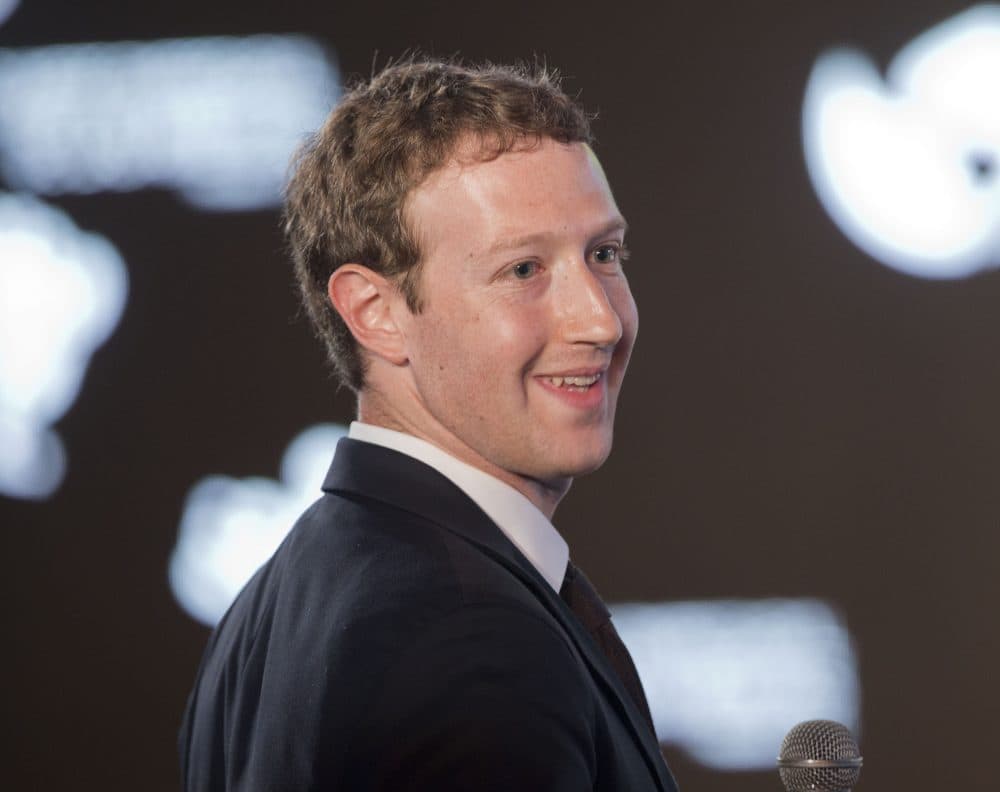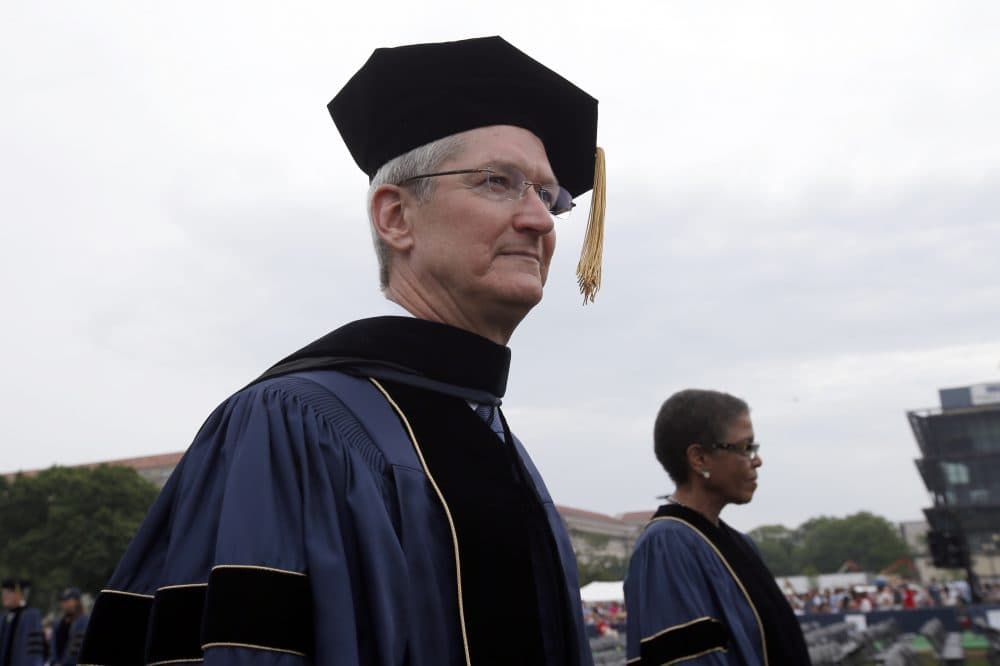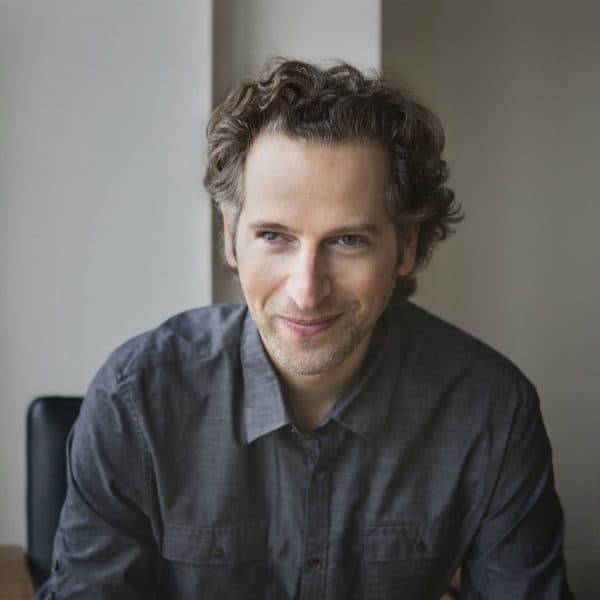Advertisement
CEOs Have No Business Being Commencement Speakers

Enter the graduation season of pride and anxiety, of protests and selfies, of parables and unease. For university students, faculty, and administrators alike, it’s been a year of soul-searching. The Trump administration has given rise to a torrent of questions, including how to talk about those questions, a kind of Borgesian unending final exam, with drastic consequences.
Perhaps never has a graduating class, or the country for that matter, been more in need of context, of a way of making sense of the past, the present and the future. That enormous task has fallen to graduation speakers, many of whom will likely seek to remind students of what unites us as a country rather than what divides us.
But at Harvard University, it’s the choice of commencement speaker, billionaire Facebook CEO Mark Zuckerberg, that brings us the news. One thing that unites us, and then ultimately divides us, is a profound cultural blind-spot: the mistaking of business leaders for moral leaders.
Perhaps never has a graduating class, or the country for that matter, been more in need of context, of a way of making sense of the past, the present and the future.
The phenomenon is widespread. To know who’s been dispensing graduation advice recently, just look at the apps on your smartphone. The CEOs of YouTube, Google, Amazon, Apple, Dropbox and Snapchat, not to mention leading Silicon Valley venture capitalists, have all received the call. Harvard may have had only two CEOs speak at commencement in the last 10 years, but that’s the same number as in the rest of its history combined.
Perhaps universities don’t really view CEOs as moral leaders but are merely making a trade. The CEOs get the stamp of intellectual legitimacy; the universities get the stamp of cultural relevancy. But whatever the reason for these speaking invitations, they are strengthening our culture’s growing faith in market success as wisdom, and exacerbating our growing allergy to context.
The roots of our mistaking business leaders for moral leaders are as old as our economic system. In 1776, in capitalism’s foundational text "Wealth of Nations," Adam Smith argued that to contribute to the public good, you don’t need to be motivated by civic virtue; better, in fact, if you’re not. The self-interested desire to succeed in a competitive marketplace becomes an “invisible hand,” pushing “the butcher, the brewer, or the baker” to work harder, to offer better products and services, thereby making life better for everyone.
But these civic contributions don’t come from civic virtue. And when we attribute moral leadership to business leaders who have given us something we enjoy, we find ourselves dismayed when they prove not to be moral leaders at all.

This is what happened after the presidential election. Many critics were shocked that Zuckerberg dismissed as “pretty crazy” the idea that Facebook might have influenced voters by creating filter bubbles and by being a loudspeaker for fake news stories (like the one, shared nearly a million times, that falsely stated that Pope Francis endorsed Mr. Trump).
Since then, Zuckerberg has struggled to articulate a more responsible vision for Facebook, but his core assumption about news has been unshakable: catering to individual preferences, by being data-analysts of popularity rather than “arbiters of truth,” eventually promotes the public good.
To this end, Facebook has given $50 million to news organizations, including the New York Times and NPR, to promote live video because the company’s research shows that viewers watch live videos an average of three times longer than recorded videos.
Goodbye all the news that’s fit to print, hello all the news that will capture our attention!
But as we point a finger at Zuckerberg for his cloudy moral vision, we also need to point a finger at ourselves. We need to take responsibility for our suggestibility, for our indifference to context, and for priding ourselves on well-worded sermons to our own little choirs, rather than on risking real debate.
And we need to take responsibility for searching out and giving our attention to true moral leaders.
The commencement speaker the year I graduated from Harvard, 1995, was Vaclav Havel. He was the president of the Czech Republic at the time, and a world-famous playwright and dissident.
For staying faithful to his moral principles, he’d been imprisoned, forced to do manual labor, beaten, and threatened with execution. After three and half years of this treatment, his captors offered him a deal. He could move to New York City with his wife, Olga.
we need to take responsibility for searching out and giving our attention to true moral leaders.
The deal was genuine. Havel said he needed to talk it over with Olga, whom he’d been allowed to see for only half an hour every three months. This was just a pretense for a cherished visit. Havel knew to take the deal would be to betray those he left behind. And he knew that if the deal was being offered, he still had influence, and therefore responsibility, in Czechoslovakia.
A few months after his refusal to leave, Havel nearly died in prison. He eventually lost a lung. But he survived.
In his Harvard commencement address, which you can read in its entirety here, Havel called for a “radical renewal of our sense of responsibility,” which could only be achieved, he said, if we discovered “a new respect for what transcends us: for the universe, for the earth, for nature, for life, and for reality.”
What concerned him most was the power of mass media, and the responsibility of those at its levers. “Quickly, suggestively, and to an unprecedented degree, it can disseminate the spirit of understanding, humanity, human solidarity and spirituality, or it can stupefy whole nations and continents.”
I hope those getting degrees this graduation season will find Havel’s speech, and read it in full — for its profound understanding of cultural and historical contexts, and for its clarity of moral vision.
That includes those receiving honorary degrees, like Zuckerberg. It might just change his life, which could change billions of other lives, too.
